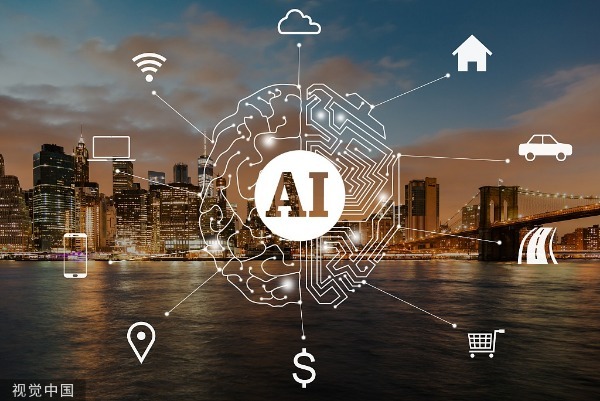Artificial Intelligence (AI)


Artificial Intelligence (AI) is a cutting-edge technical science that studies and develops theories, methods, technologies and application systems dedicated to simulating and extending human intelligence. It is an interdisciplinary science and technology based on computer science, biology, psychology, neuroscience, mathematics and philosophy. The main purpose of AI is to develop human-like intelligence for computers, such as the ability to reason, learn, and problem-solve.
The subdivisions of AI technology include deep learning, computer vision, intelligent robots, virtual personal assistants, natural language processing, real-time speech translation, context-aware computing, gesture control, automatic identification of visual contents and recommendation engines. At present, AI technology permeates all aspects of modern life, ranging from traffic, enterprise services, finance, entertainment, media, healthcare, education, advertising and logistics to hardware and tools software.
AI is triggering a new industrial revolution toward intelligentization, which is driven by three key elements: big data, computing power and algorithms. Big data mainly comes from the growing number of smart IoT devices, computing power is buttressed by such technologies as high performance computing, cloud computing or edge computing, and algorithms like machine learning and deep learning have seen notable progress. Enterprises are thus enabled to learn and grasp knowledge, experience and process within their industry quickly while each of their value chain links becomes more intelligent.
Since 2018, AI has gained worldwide acceptance for its enormous potential for technology, industry and revolutionary changes in society and many countries have upgraded their AI strategy. China attaches great importance to promoting the development of AI. As of June 2019, a total of 26 AI special policies had been rolled out by 19 provinces, municipalities and autonomous regions. Propelled by the new policies, China has sped up its industrialization of AI technology and initiated major changes in many application fields, including smart manufacturing, financial technology, digital content and new media, new retail and intelligent security systems, which has provided strong support for the transformation of growth drivers and the high-quality development of the national economy.
The market scale of AI in China hit $1.76 billion in 2018, and the number is expected to reach $11.9 billion in 2023. As of the end of 2018, China had 3,341 AI enterprises, accounting for more than one-fifth of the world's total 15,916 AI firms. By March 2019, there were 50 AI unicorn companies in China, with a total value of more than 3.5 trillion yuan ($521.16 billion). Among them, there are 19 super unicorns with a valuation of over 20 billion yuan. Beijing is home to 28 AI unicorn enterprises.
Relying on big data and computer vision technology, mobile car-hailing platform Didi Chuxing has been devoted to smart transportation and is pushing forward intelligent infrastructure, intelligent vehicles and ride-sharing services. Chinese AI pioneer SenseTime has widely applied visual technologies (face recognition and image recognition) to industries like finance and automobiles, and is serving over 700 enterprises. Alibaba’s online payment subsidiary Ant Financial has employed AI in its credit and loan, wealth management, security and customer services. Questyle Audio provides real-name authentication for 295 million people worldwide in banking, insurance, securities and digital finance, and is about to deploy AIoT in city management, logistics and retailing.




